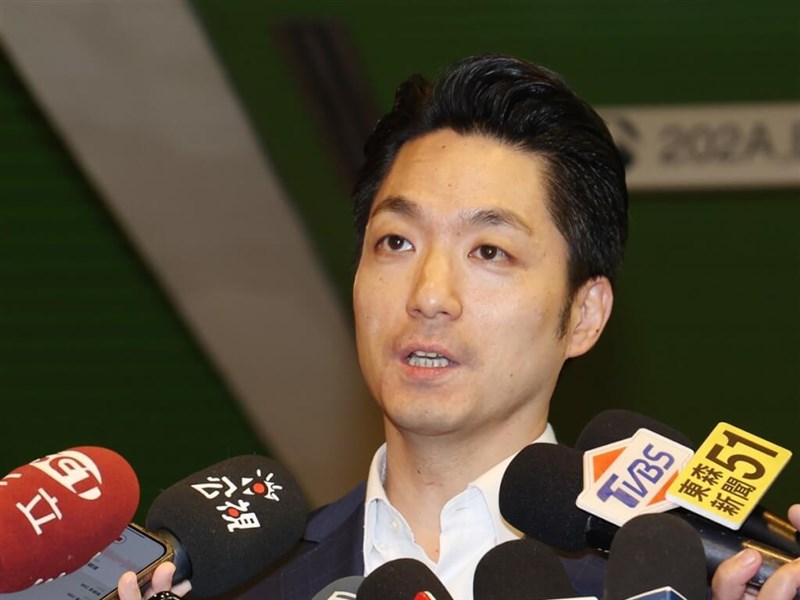Taipei, April 7 (CNA) Taipei Mayor Chiang Wan-an (蔣萬安) has scheduled a meeting this week with the mayors of three other municipalities in northern Taiwan to discuss response measures to the tariffs recently announced by U.S. President Donald Trump, according to a source.
Chiang made phone calls Sunday afternoon to Hou Yu-ih (侯友宜), Hsieh Kuo-liang (謝國樑), and Chang San-cheng (張善政) — the mayors of New Taipei, Keelung, and Taoyuan, respectively — to arrange a meeting during the week, the source told CNA on condition of anonymity.
The four mayors have already reached a consensus to jointly buffer the impact of the United States’ 32 percent tariff on Taiwanese imports, which takes effect April 9, and they are expected to map out support measures for their region’s primary industries, the source said.
Chiang has also launched an online platform to collect opinions from small and medium-sized enterprises, after Trump announced the new tariffs last Thursday, the source said.
In addition, the mayor of the Taiwan capital held “hectic meetings” with the heads of several city government bureaus during the Tomb Sweeping holiday April 3-6, according to the source.
In a similar move, Taoyuan Mayor Chang San-cheng has contacted the local government heads of Hsinchu City, Hsinchu County, and Miaoli County — three municipalities that make up a major hub in Taiwan’s technology sector — to discuss coordinated responses, the Taoyuan City government said in a statement released Sunday evening.
According to Taoyuan’s Department of Economic Development, the heads of key industry associations and firms have been invited to a roundtable discussion with the city government on Thursday.
These developments are part of a series of broader efforts by local government leaders to mitigate the pressure caused by the Trump administration’s trade policies, after opposition Kuomintang Chairman Eric Chu (朱立倫) on Sunday accused President Lai Ching-te (賴清德) of taking an “overly naive” approach to the tariff issue.
None of the seven city and county governments involved are led by the ruling Democratic Progressive Party.
In a departure from the responses by other economies such as the European Union and China, Lai said Sunday that Taiwan would not take any retaliatory actions against the U.S. tariffs.
Lai said that his administration had established a negotiation team, led by Vice Premier Cheng Li-chiun (鄭麗君), to launch formal talks with the United States. The negotiations “can start with a goal of ‘zero tariffs,’ modeled after the USMCA (United States-Mexico-Canada Agreement),” he said.
In an interview with CBS News on Sunday, U.S. Commerce Secretary Howard Lutnick said “there is no postponing” the newly announced tariffs, regardless of ongoing negotiations.
On Monday, Taiwan’s stock market plunged more than 2,000 points at the opening bell and soon fell below the 20,000 mark. The most heavily weighted stock on the local market, Taiwan Semiconductor Manufacturing Co. (TSMC), plummeted to NT$848 (US$25.56) — its limit-down price — as soon as the market opened.
